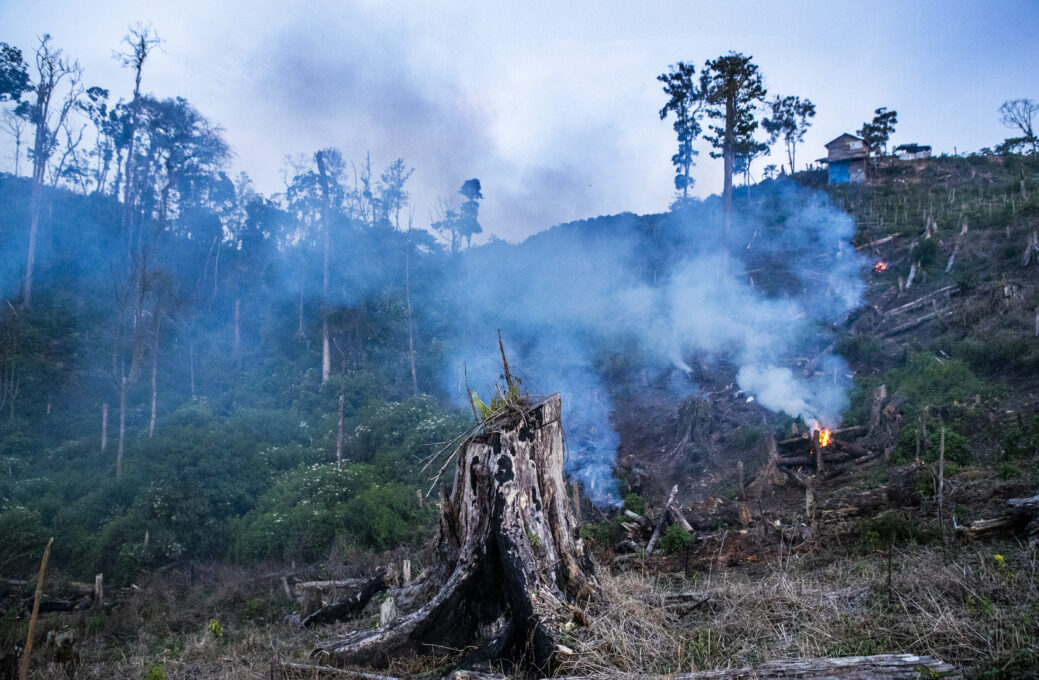Humanity is in the midst of a biodiversity crisis that threatens the foundations of organized human society. Nearly three-quarters of Earth’s land is now degraded, with an estimated one million species facing imminent extinction.
Biodiversity loss — which is irreversible once a species goes extinct — threatens the resilience of global ecosystems that over half of the global economy relies on. An estimated $44 trillion of global GDP, including essential food, shelter and transportation sectors, rely on ecosystems that corporations are decimating through profit-driven overfishing, deforestation and industrial monoculture.
The Taskforce on Nature-related Financial Disclosures (TNFD) has emerged as a proposed solution to the biodiversity crisis — but it’s a product of the same collusion between corporations and regulators that has deepened, not helped, the planet’s biodiversity crisis.
TNFD is entirely an invention of the private sector and thus reflects the interests of the corporations it seeks to regulate — the corporations driving the biodiversity crisis.

A market-based solution
TNFD is a corporate disclosure scheme similar to the Taskforce on Climate-related Financial Disclosures (TCFD), a G20 initiative that sprang up in the wake of the 2015 Paris Agreement to help corporations perceive and publicly report on their climate change mitigation efforts and impacts.
Like TCFD and climate change, TNFD seeks to “price in” the cost of biodiversity loss. In theory, corporations with higher financial risk from biodiversity loss, or ones that have more negative impacts on biodiversity, will face rising costs as investor confidence goes down and public or regulatory scrutiny goes up.
Regulatory bodies have shown an appetite for this kind of reporting: the US, UK, France, Canada and other major Western countries have proposed or adopted mandatory, TCFD-aligned climate disclosure rules. With UN backing, TNFD is similarly poised to become the gold standard for biodiversity disclosures.
An attempt by private industry to self-regulate
Despite its UN bona fides, TNFD is entirely an invention of the private sector and thus reflects the interests of the corporations it seeks to regulate — the corporations driving the biodiversity crisis. TNFD is made up of 40 senior staff from multinationals such as Bank of America, one of the world’s biggest fossil fuel financiers, and BlackRock, the world’s largest investor in deforestation.
This predominantly White, affluent task force has shirked input from environmental activists and frontline communities since its inception in 2021 — including Afro-descendants, peasants, Indigenous peoples, women’s organizations and youth movements — a problem which reveals itself in TNFD’s fatal flaws:
- Communities cut out of the analysis. TNFD location reports are incredibly vague such that impacts will not be traceable to specific communities.
- Grievances left on the table. Conflicts with communities over impacts on nature (e.g., deforestation) are not reported.
- Subjective risk assessments. Only risks that corporations deem “material” to the financial health of the business need to be included in the assessment.
- Data incoherence. Non-standardized methodologies make it so that independent data verification is difficult and data is broadly incoherent.
TNFD not only fails to adequately measure nature-related risks, it creates opportunities for corporations to actively obscure their biodiversity-related impacts while avoiding accountability to frontline communities. Instead of bringing market or regulatory forces to bear, TNFD promotes greenwashing — benefiting corporations while sidelining the frontline communities in search of real solutions.
Real solutions center justice
Any serious solution to the biodiversity crisis must center justice. As it stands, TNFD is only a voluntary reporting scheme — reported or unreported impacts on biodiversity carry no consequences. And even if TNFD were to become mandatory in some jurisdictions, it does not challenge the right of corporations to keep 100% of the profits they make off of environmental harms. The omission of frontline communities from TNFD’s analysis forecloses avenues for justice where harms to nature harm communities.
Rainforest Action Network has been reporting on the biodiversity and human rights records of major corporations for years. Click to find more information about the brands and banks driving biodiversity loss and for more info about TNFD.












